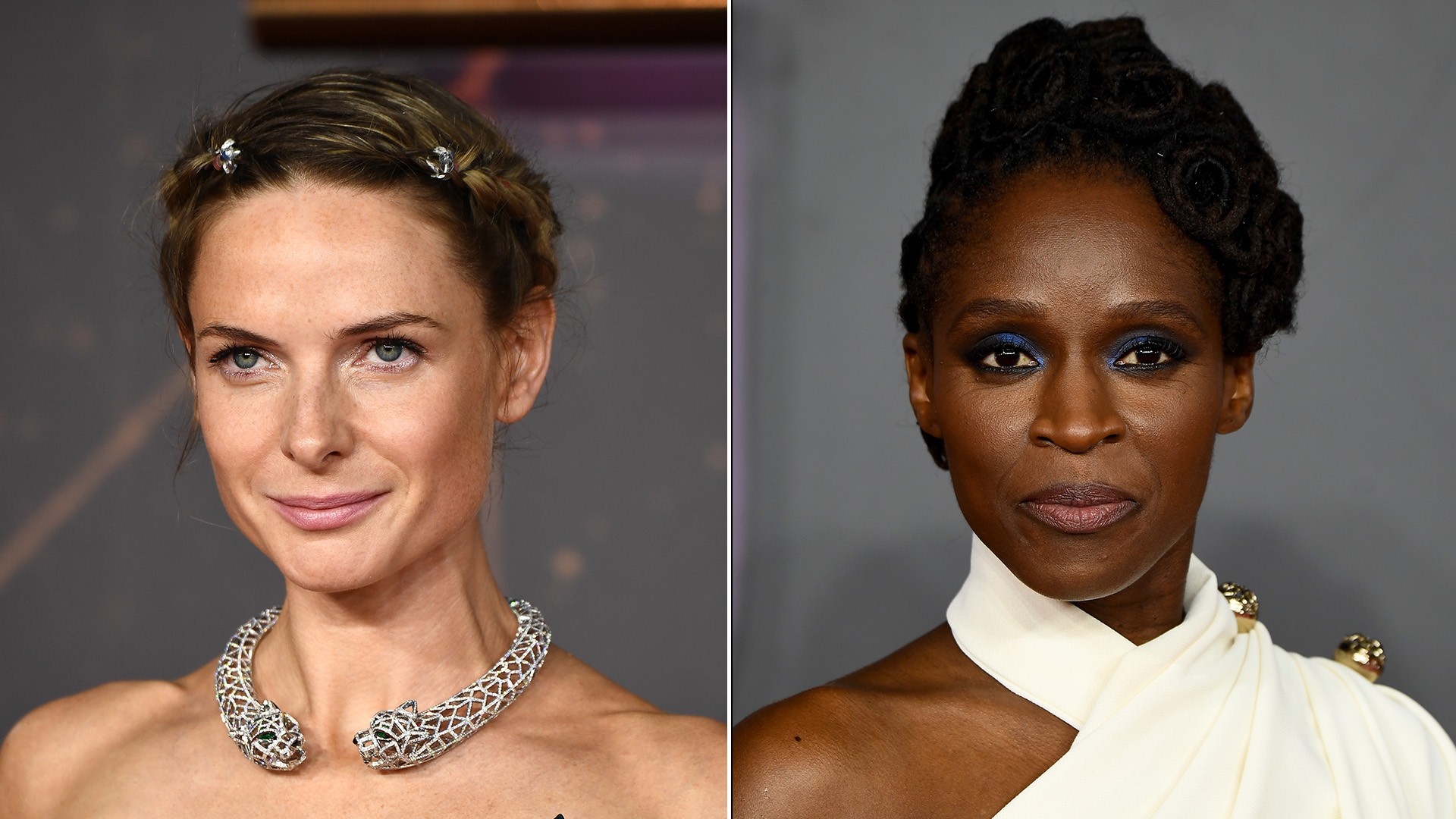Dune stars say learning to "walk without rhythm" was not as easy as it looks
Rebecca Ferguson and Sharon Duncan-Brewster discuss the secrets of "the sand walk" and the resonant themes of Denis Villeneuve's Dune

As Fatboy Slim’s “Weapon of Choice” advises, “Walk without rhythm, and it won’t attract the worm.” He was, of course, making reference to Frank Herbert’s sci-fi saga Dune, set on the desert planet Arrakis, which is overrun by massive, deadly sandworms. The best way to avoid them? Traipsing the land in a distinctive, rhythm-less gait.
But how, exactly, does one “walk without rhythm?” “Weapon Of Choice’s” Spike Jonze-directed video doesn’t provide any concrete answers—though it does offer up some unforgettably smooth moves from Christopher Walken—so The A.V. Club turned to two of the stars of Denis Villeneuve’s Dune adaptation for advice. Surely they could give us some pointers, right?
“It was so hard—I have so much rhythm, so it was so difficult,” jokes Rebecca Ferguson, who stars as Lady Jessica, the mother of protagonist Paul Atreides (Timothée Chalamet), and member of the powerful Bene Gesserit. According to Ferguson, the secret is not worrying about looking too cool (“I think I did a good job of that”), but thinking, instead, about the science behind it. “The technology that you use to break the rhythm of waves so that bridges don’t fall is sending out other noise to break the rhythm.” It’s all about the way your steps vibrate, acoustically, throughout the earth, and that’s something the actor kept back of mind as she was dashing across the desert during production.
As Sharon Duncan-Brewster remembers, some of her Dune co-stars were actually trained to get the walk just right: “There was some sort of choreography going on; there are rules to how to do these these movements.” And though she plays Arrakis’ imperial ecologist Dr. Liet-Kynes, Duncan-Brewster shared her disappointment that she never got to learn the moves herself: “I personally didn’t have to do all that, even though my character would know how, but I definitely saw some practice going on. I won’t say who it was, but they were looking good when I saw them.”
But, as Ferguson adds, the point was to not look too good. Timothée’s Paul understands the rhythms, but Lady Jessica is meant to come off as more of a novice. “Because I’m a bit of a perfectionist, I went, ‘OK, great, I’ll study [the walk] as well.’ And then I thought, ‘No, no, I’m not allowed to know it—that’s the whole point!’” So, when it came time to film the walk, Ferguson just winged it. She eventually got to a level of walking without rhythm she was happy with, it just took a few extra steps and some patience from her director: “Denis was going, ‘Come on, it’s not hard It’s one, two, three, pause, and go!’”
So, while Ferguson and Duncan-Brewster couldn’t exactly enlighten us on the proper methods of “the sand walk,” they were more than happy to expound on Dune’s rich thematic textures, which still feel relevant nearly 60 years after the novel was written. For Ferguson, the biggest pull of Villeneuve’s adaptation was the expanded role for her character, Lady Jessica, and what the film has to say about the motherhood and spirituality:
If you’re interested in the sort of recycling, and where we are in today’s society, the political, the geopolitical—there are so many aspects [to draw you in]. But I keep coming back—and it could be the centralization of me as a mother—but I love the dynamic that my character has to go through, when it comes to putting her son in front of challenges where the outcome can become death because of her belief system. Now, I find religion scary—I’m not going to say “root of all evil” because I think it’s very important for a lot of people, I hug trees—but I find it very interesting. So I guess this sort of belief, the religious, and spiritual aspect in regards to being the protector and the mother that she is, that’s what I find very, very interesting.
Duncan-Brewster also recognized a deep spirituality in Dune, but, for her, it’s not so much something to be feared as it is something to be embraced, particularly as it pertains to our own relationships with Earth:
It’s the connection of spirituality and reality. And I think a lot of people would shy away from that, because you start talking about spirituality and people think, “Oh, she’s getting all heebie-jeebie.” But, I look at spirituality in a sense of science—when you see repetitions of numbers and patterns and things in everything that we see on a day-to-day basis. And, when you start to look at that and you think, “OK, well, we are on this planet that we didn’t—we don’t know the hell we got here, but we’re here.” And there are all these extraordinary things that surround us: Some of them are man-made, and some of them are of the world, of the Earth. You know, [Dune has] the sandworms, and the Fremen [native people], and there is a cycle. Without one, you can’t have the other. And I feel that it’s the same for us on on planet Earth. Humans need to respect everything else that’s around us—I think we just need to just keep that balance, bring the balance back.
For more of Rebecca Ferguson and Sharon Duncan-Brewster’s thoughts on Dune’s themes and the challenges of sand-walking, you can watch the full video interviews above.
[pm_embed_youtube id=’PLVfin74Qx3tV5SCqb8GySunp8xYU2mwD0′ type=’playlist’]Dune is now playing in theaters worldwide, and is available to stream exclusively on HBO Max. To prepare yourself for life on Arrakis, you can read William Hughes’ handy primer on the dense world of Dune, and check out Ignatiy Vishnevetsky’s review here.